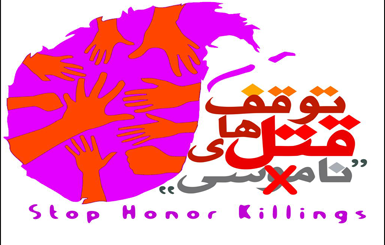17-Year-Old Girl Killed by Her Father in Darreh Shahr
August 26, 2024, in Darreh Shahr County, Ilam Province, Mobina Zeynivand, a 17-year-old from the village of Garzalang in the Majin district of Darreh Shahr, was killed by her 56-year-old father with a firearm, motivated by so-called “honor.”
A source familiar with the incident described the murder as horrific in a conversation with the Campaign to Stop “honor” Killings, stating: “Mobina was a lively and energetic girl with no fault other than being in love with a boy whom Mobina’s father, Rahim Khan, disapproved of, along with the boy’s family.
On the day of the incident, Rahim Khan shot Mobina at home.”
A video of Mobina has been released, showing her riding a motorcycle.
Although the accused has been arrested, the laws of the Islamic Republic are not sufficiently preventative regarding child murder, especially when the victim is a girl.
Articles 301, 302, 630, and 612 of the Islamic Penal Code are some of the provisions that allow perpetrators to commit such crimes with relative impunity.
This horrific incident and the rise in honor killings have raised serious concerns about the state of domestic violence and the role of local traditions and cultures in exacerbating such incidents.
This event reflects the deep-rooted beliefs in some communities that continue to insist on stringent control over interpersonal relationships, especially among the youth, based on traditional and restrictive views.
From a social psychology perspective, this type of family violence is often the result of social and cultural pressures imposed on individuals. In societies where traditional values and patriarchal control remain strong, behaviors like having a romantic relationship outside of marriage can lead to extreme and violent reactions. These reactions often stem from a perceived threat to family honor and reputation, which are still highly valued in some cultures.
Additionally, a lack of proper education on emotion management and conflict resolution can contribute to such extreme behaviors. This incident underscores the need to focus on educational and cultural issues to prevent the recurrence of such painful tragedies.
The Islamic Republic of Iran, with its emphasis on specific traditional and religious values, plays a significant role in shaping people’s beliefs and behaviors. By promoting concepts such as strict control over sexual behavior and social interactions, the system has contributed to the institutionalization of domestic violence and honor killings.
Misguided education in the Islamic Republic instills from childhood that preserving family “honor” and “dignity” outweighs human values like individual freedom and human rights. These teachings, combined with laws and policies that often fail to provide sufficient support for victims of domestic violence, have paved the way for an increase in honor killings. Such education drives individuals towards violence and repression rather than promoting understanding and empathy, playing a crucial role in the escalation and repetition of these crimes in society.
Correcting this situation requires revising the educational and cultural system and striving to change incorrect attitudes while enhancing individual rights and freedoms.
The Islamic Republic and government-affiliated media attempt to downplay the issue by labeling these cases as “family murders” or motivated by “family disputes,” thus reducing the serious social crisis of honor killings to a personal matter. This serves to deflect criticism from the government and its flawed educational policies while evading responsibility.
Follow the news on the Telegram group of the Campaign to Stop Honor Killings: [https://t.me/stophonorkilling](https://t.me/stophonorkilling)
Razvan Moghaddam, Spokesperson of the Campaign to Stop “honor” Killings.


















